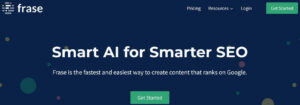Abstract
Social media technology has been applied to higher education institutions to facilitate learning. However, there are numerous drawbacks associated with the use of this technology. Often, there are unintended outcomes that arise with the use of social media as a learning tool. The technology is redefining the roles of instructors to that of facilitators in learning practices. Instructors are shifting from the customary roles of lecturing ad teaching to emerging needs to facilitating learning through the use of social media technology. The use of social media in learning also leads to other unintended outcomes as it has been found to facilitate major distractions in learning environment as well as a health concern to students. Issues of texting, phone calls, games, and other digital activities in learning environment, as well as cases of insomnia due overusing social media, have been found to considerably affect the learning process.
Drawbacks of Social Media Technology: Analysis of the Unintended Outcomes of Social Media as a Learning Tool in Higher Education
Introduction
Social media can be viewed as technological systems that enable persons or groups to interconnect without restrictions or boundaries through the World Wide Web. Through these media, people are given the platforms for collaborations, share information, share real-time updates, form a community, learn of breaking news, and enlarge their global networks (Selwyn, 2012). With the media, people can upload videos and photos, make comments, support causes, and approval or disapproval of other connected individuals’ pictures, updates, and posts. The availability of these digital media so readily and instantaneous has had effects in education systems as students are as lectures are exposed to the technology. Even though instantaneous and readily available digital information leads to networking power and unparalleled communication among students, it also leads to ultimate negative effects on students’ learning, such as poor communication skills, time wastage, disruption of writing skills, poor concentration, academic dishonesty and it also causes insomnia, among other issues.
Negative Impacts
Poor Communication Skills
Social media use by students has led to a reduction in real contact with humans in contemporary times, causing poor communication skills. According to Goodyear, Armour, and Wood (2019), the more time a student spends on social media, the less time they have to socialize face to face with others. As a result, communication skills, which are an imperious aspect of education for these students, are reduced. Thus, the students will be unable to communicate with others and even effectively socialize in person during school hours and after school. This had made it hard for them, especially during employment (Goodyear, Armour, & Wood, 2019). In the job market, employers are becoming more unsatisfied with the fresh graduates’ poor communication skills. It is worth noting that effective skills in communication are essential to succeed in the both academic and real-world (Goodyear, Armour, & Wood, 2019). Students are required to spend more real-time with their colleagues through group work and other academic activities to enhance their communication skills, which is an essential facet of education.
Time Wastage
Students waste much time designated for studying by using social media, especially when studying and searching online. In most cases, students always get attracted to various social media sites when doing research and quickly forget their objective. As an outcome, they waste much time, and on some occasions, students are not in a position to deliver their schoolwork within the specified. Students in modern times frequently search for data online that are not adding any value to them in their education (Hashim, Al-Sharqi, & Kutbi, 2019). Apart from that, the frequent use of social media by students has also led to a significant deadline in the passion of most students to read for enjoyment and pleasure but rather prefer seeking pleasure from social media by either reading gossips or even streaming videos (Hashim, Al-Sharqi, & Kutbi, 2019). Therefore, most students presently read-only for them to pass their exams not to gain knowledge.
Disruption of Writing Skills
Social media has also disrupted the writing skills of the student. This is because the students currently find it hard to write long essays because they no longer read storybooks and novels that are capable of educating them on writing skills. Notably, conferring to Hashim, K., Al-Sharqi, L., & Kutbi, (2019), the internet is always full of short stories as well as write-ups with copious abbreviations, which makes the students who are addicted to reading these stories not to have meaningful writing skills. As a result, the grammar and punctuation of these students have been impacted negatively, affecting their education in the long run. Importantly, these actions impact most of them during tests and exams (Hashim, Al-Sharqi, & Kutbi, 2019). Several examiners have reported that students are currently using many abbreviations and sentences, which does not make sense in their work. Therefore, the student should reduce their use of social media and focus more on reading books to improve their writing skills.
Privacy
The extent to which personal data is availed online and the internet anonymity provided has made many students ignore the need for filtering the information being posted online. Cho & Park (2019), posits that presently, many potential employers and colleges, investigate the social media profile of any applicant before granting those interviews or acceptance into their schools. Many students frequently fail to evaluate their content consistently when publishing online, and these can lead to contrary recursion after some time when they are looking for jobs after school or even college admission. An excellent example is the recent case of Kyle Kashuv, whose admission was rescinded for his racist remarks on social media (Geis, 2019). Apart from that, in the past two years, Harvard University has also revoked the admission offer of ten students who participated in a Facebook group that was highly offensive. In this respect, students should be careful about what they post online because it can be used against them either in admission or job interviews.
Poor Concentration
The addictive nature of social media has caused poor concentration, mainly in classrooms. For example, many students are addicted to texting and even watching unrated materials during their time on social media. For this reason, texting and other similar distractions inhibit students’ self-regulation abilities as denoted by Mehta, and Lingeshwaran (2019), in their study. Subsequently, this disturbs their cognitive learning abilities, which is essential for information processing such as working memory, attention, metacognition, and long term and short term memory. When one loses the ability to any of these, it impacts the others who are around them. Therefore, students engaging in texting and other digital activities contribute to lower test scores and even lower total grades (Mehta & Lingeshwaran, 2019). Social media and its usage should only be limited to specific times, when the students are free, mainly after completing their school work and other chores.
Academic Honesty
On the other hand, the other concern of social media is the issue of academic honesty. Students often cheat in examinations by retrieving the documents and files stored on their phones to find answers. Some use the internet to search for answers, while others use text messaging to request answers from their friends. This has adverse effects as students are relying on the technological advancement to cheat on exams (Hashim, Al-Sharqi, & Kutbi, 2019). If students consistently rely on this academic dishonesty in tackling exams throughout their academic journey, the universities and other institutions of higher learning produce incompetent graduates into the job market (Hashim, Al-Sharqi, & Kutbi, 2019). These potential employees and employment creators do not possess the confidence and thus half-baked graduates who cannot comfortably fit into a nations’ workforce. Therefore educational institutions are required to put more stringent policies regarding the use of social media either in classrooms or the school as a whole.
Causes Insomnia
Over use of social media by students, especially at night has led to cases of insomnia among university students. This prevalence is associated with social media use (Abdalqader et al., 2018). According to the study, 69% of the students were suffering from insomnia. The study found about 60 percent of students to suffer from poor quality sleep. The study also found that 61.6% of students were suffering from insomnia in Debre Berhan University in 2017, and this was associated with a lack their lack of concentration, poor work performance, and weaker memory (Abdalqader et al., 2018). This eventually resulted in high rates of class absenteeism, increased injuries at workplace, and motor vehicle accidents. Many students frequent social media sites for long periods. This may be before sleeping, in the evening, or even over the night. This leaves them with little time to rest and sleep, and this is seen during class time where they usually fall asleep. This consequently affects their academic performance as sleep translates to failure to get instructors while teaching.
Conclusions
It is ostensive that social media has led to instantaneous and readily available digital information, which has helped students in various ways in their studies, but it also presents adverse effects to the students, as shown above. Some of the negative impacts of social media on students’ learning abilities are poor communication skills, time wastage, disruption of writing skills, poor concentration, academic dishonesty, and it also causes insomnia, among others. Therefore, more studies should be done so that these adverse effects can be improved to make social media a productive tool in education.

